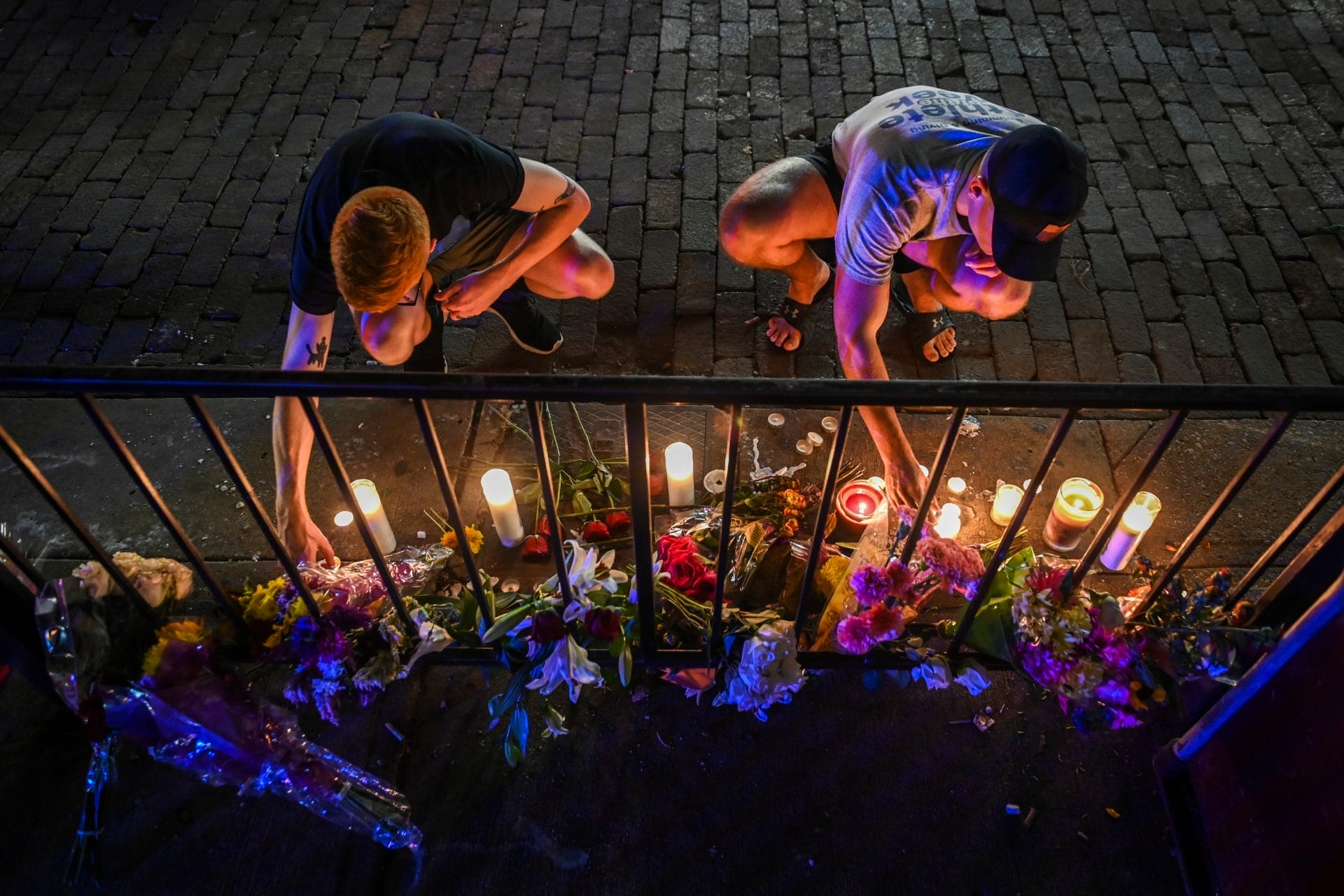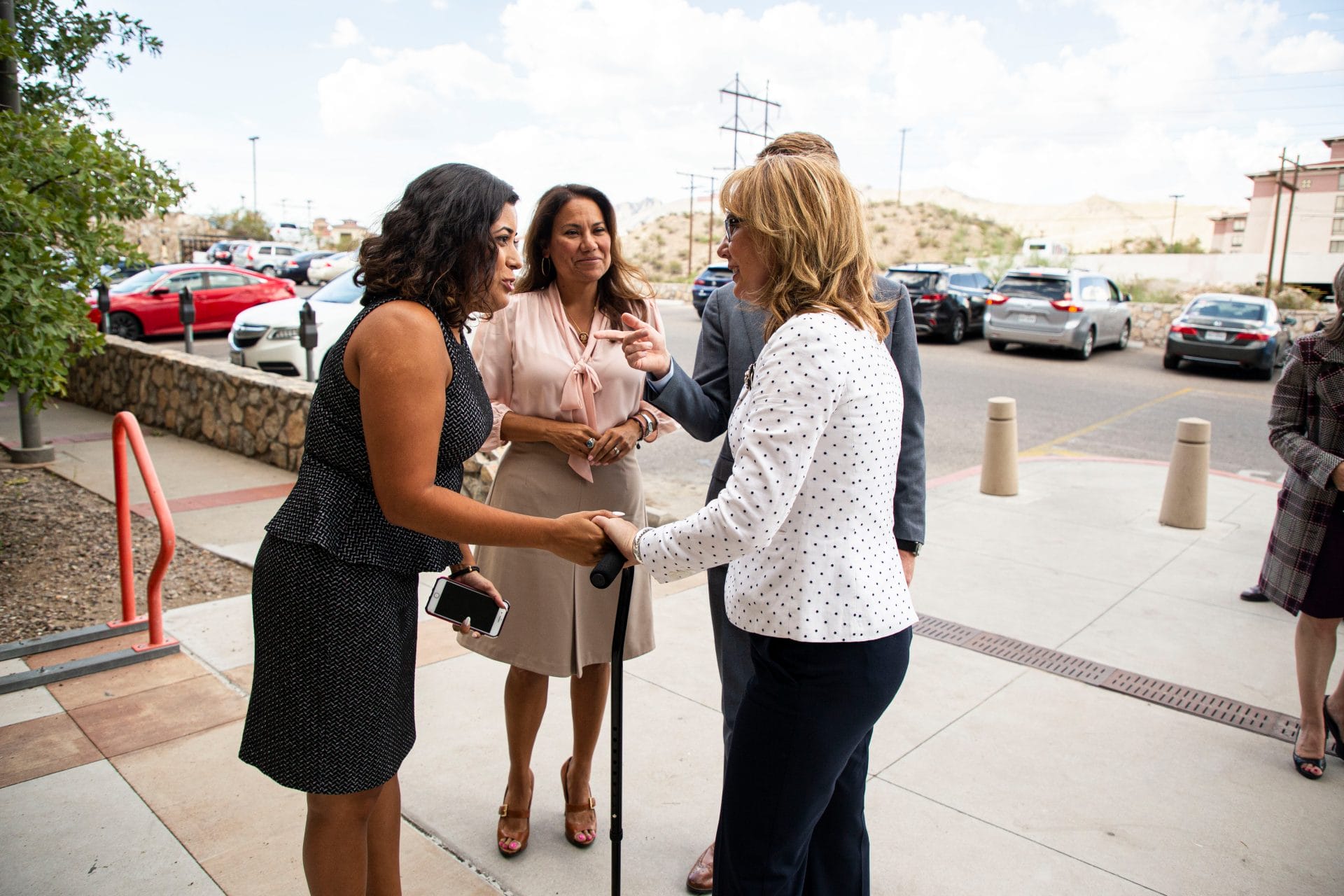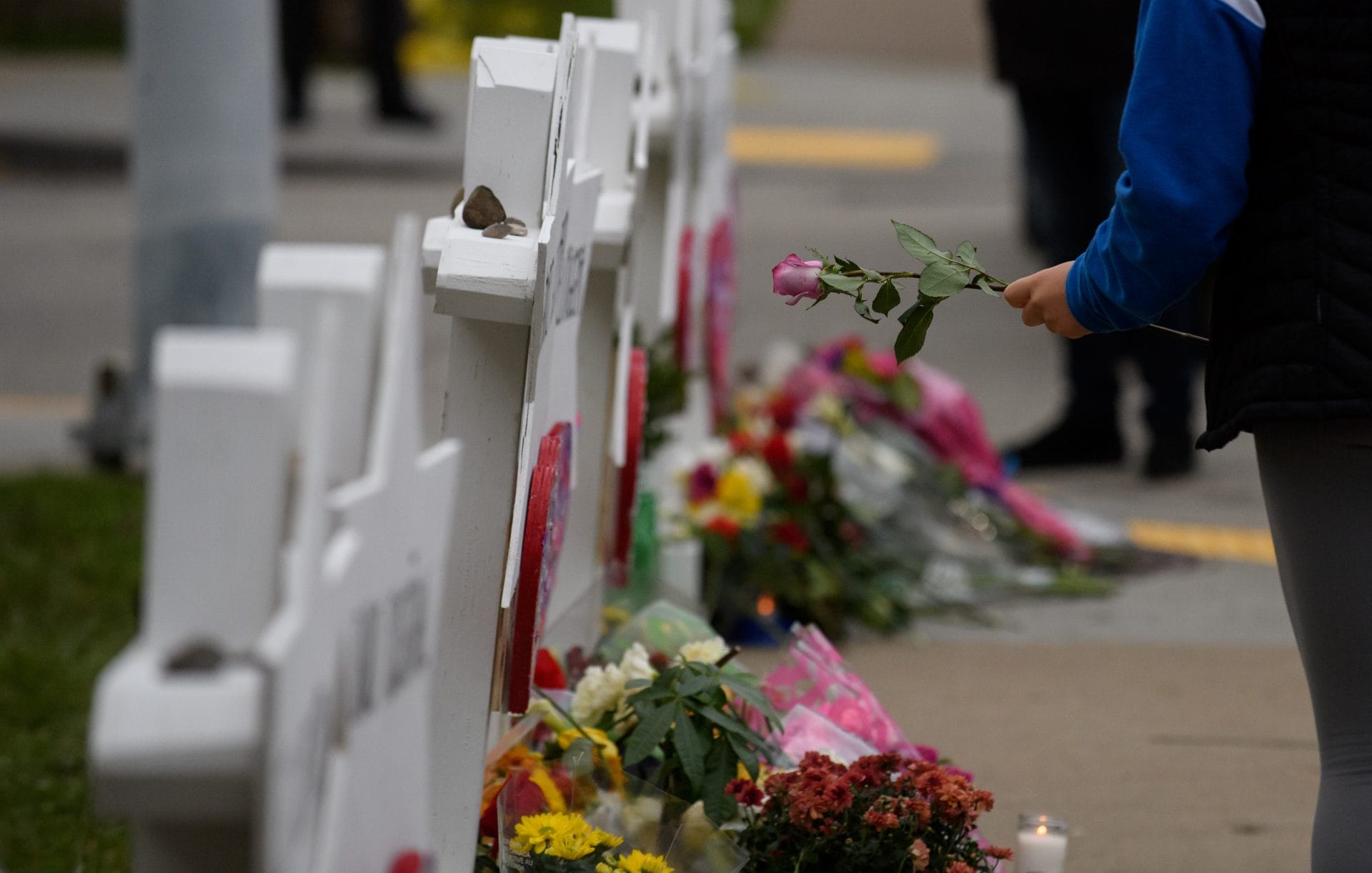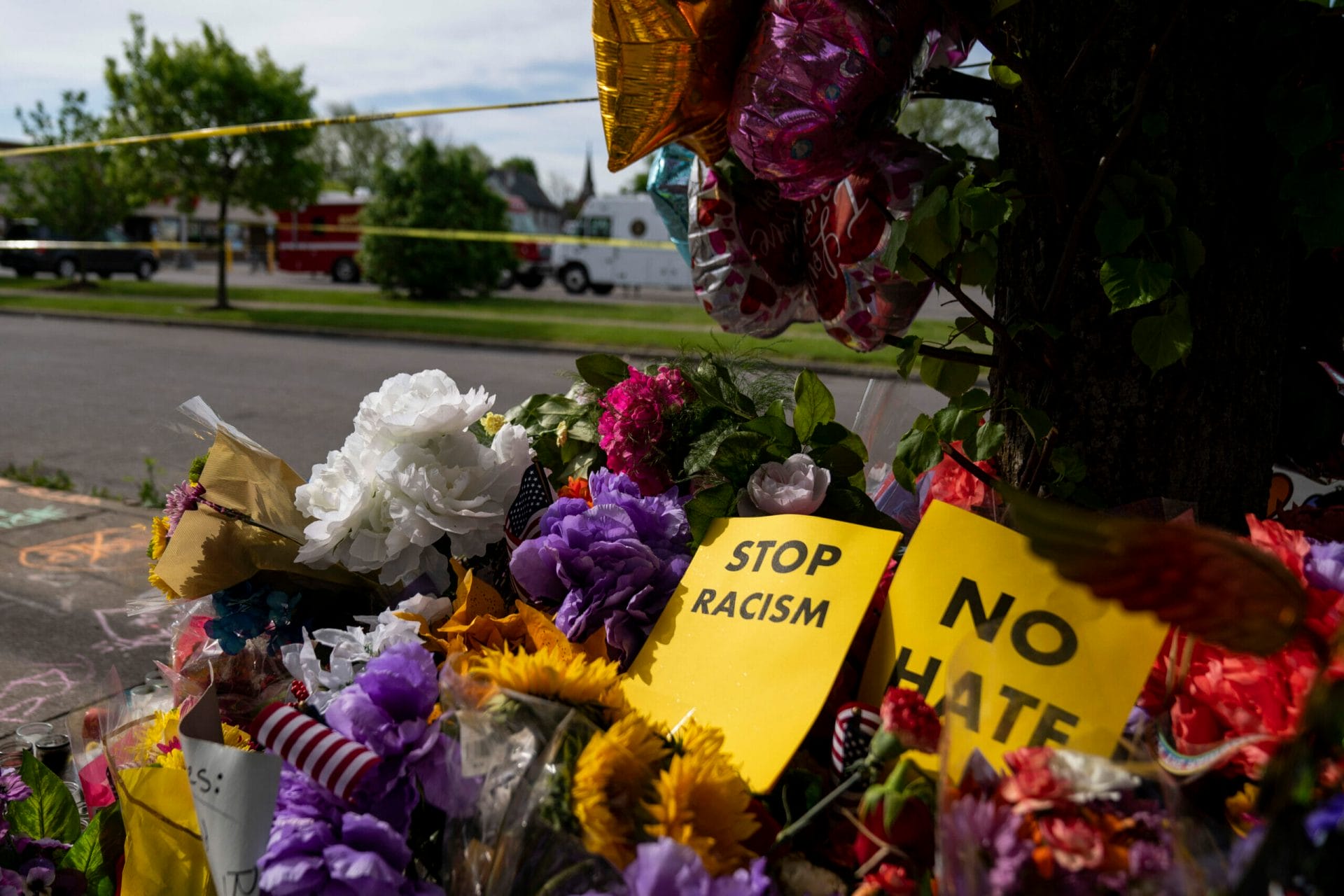
Guns are often the tools of violent hate and extremism, facilitating attacks that sow terror throughout entire communities.
A Sikh temple in Wisconsin. The University of California campus in Santa Barbara. The Emanuel African Methodist Episcopal church in Charleston. Pulse nightclub in Orlando. The Tree of Life synagogue in Pittsburgh. A Walmart in El Paso. Three spas in Atlanta. A grocery store in Buffalo. Club Q in Colorado Springs. And so, so many more.
Some of the deadliest mass shootings in our nation’s history have been motivated by bias—and disturbingly, they’ve become more frequent in recent years. In addition to large-scale shootings that make headlines, hate crimes also take the form of individual attacks, and they don’t necessarily involve a firearm being fired.
Armed hate is an escalating issue, and without action at the state and federal level it will continue to harm communities. It’s more urgent than ever to enact laws that limit access to guns for perpetrators of hate crimes.

REPORT
POLICIES TO DISARM HATE
Hate crimes are on the rise, and guns make it far too easy for a bias-motivated attack to turn deadly. Yet our gun laws suffer from major limitations that allow too many people convicted of hate crimes to obtain firearms. Our report, How America’s Gun Laws Fuel Armed Hate, examines how we can better protect communities from armed extremists.
Read MoreIt was May 14, 2021, his three-year-old son’s birthday, and Andre Mackniel was at Tops Friendly Markets in Buffalo picking up a cake. On a day meant for celebration, Andre never made it home—and his family’s life was altered forever. He was killed by a mass shooter who selected the grocery store because it was in a predominantly Black neighborhood.
In total, 10 people—all of whom were Black—were killed, and three more were injured. It was a targeted attack, devastating the community and exposing the ease with which lives can be cut short in violent acts of hate.
The widespread impact of hate crimes makes them particularly egregious. These attacks are meant to send a message: that victims are vulnerable because of who they inherently are. As a result, hate crimes often cause psychological distress not only to victims, but also to other members of the group that was targeted.
Hateful bias and easy access to firearms are a deadly combination, and the problem is only growing. Hate crimes, particularly on the basis of gender identity, sexual orientation, and ancestry have become increasingly common. In recent years, the FBI has elevated “racially motivated violent extremism” to a top-level priority threat.
Lawmakers at the state and federal levels have the power to better protect all Americans from violent hate. They must take immediate action to address this threat, starting with stronger gun laws.
The FBI defines a hate crime as “a criminal offense against a person or property motivated in whole or in part by an offender’s bias against a race, religion, disability, sexual orientation, ethnicity, gender, or gender identity.” Under federal law, prosecutors may charge people with hate crimes for offenses including assault, murder, arson, and vandalism, as well as threats or conspiracy to commit these offenses, when the offense is motivated by bias.
Each year, there are at least 27,000 violent hate crime attacks involving either the use or threatened use of guns in the United States. The majority of hate crime attacks are motivated by race or ethnicity-related bigotry. In recent years, the number of hate crimes has increased significantly.
Research shows that people who have been convicted of violent hate crimes tend to continue or escalate their behavior. Yet, the United States doesn’t have any firearm restrictions specific to hate crimes in place at the national level. Federal law only prohibits firearm access by people convicted of felonies punishable by more than a year in prison or state-level misdemeanors punishable by more than two years, which excludes many people with a high likelihood of violence.
It’s far too easy for hate-fueled individuals to legally buy guns simply because their sentence wasn’t long enough to trigger a firearm restriction. Guns are sometimes used to intimidate victims during hate crimes without being fired, resulting in a shorter sentence.
To effectively address the rising number of hate crimes perpetrated with firearms, hate crime gun laws must protect all Americans and must be implemented properly.
THE FACTS
Source
Lynn Langton and Madeline Masucci, “Hate Crime Victimization,” United States Department of Justice, 2017, https://www.bjs.gov/content/pub/pdf/hcv0415.pdf.
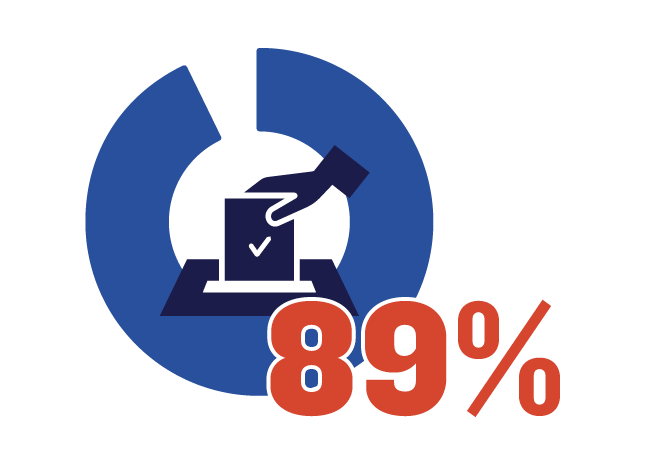
of voters support background checks
Source
“Voter Support for Stricter Gun Control Reaches New High,” Morning Consult, June 15, 2022, https://morningconsult.com/2022/06/15/new-high-in-voter-support-for-stricter-gun-control-survey/
Source
“Hate Crimes,” Crime Data Explorer, Federal Bureau of Investigation, last accessed May 10, 2023, https://cde.ucr.cjis.gov/LATEST/webapp/#/pages/explorer/crime/hate-crime.
Hate crime laws generally apply after the fact, increasing penalties when a serious violent crime is carried out with hateful intent. By ignoring the proven risk factors of hate crime misdemeanors, we’re missing an opportunity to prevent more serious violent crimes before they happen.
There is a longstanding precedent of increased restrictions on firearm access when there’s an elevated risk in other areas, such as domestic violence, the involvement of minors, or mental illness. Restricting access to guns for those most likely to commit violent hate crimes is a logical and reasonable step in addressing our country’s gun violence crisis.
In addition to restricting the purchase of new weapons, states must enact laws that specifically require firearm relinquishment for people convicted of hate crime misdemeanors. States should also expand these protections to all protected groups on the basis of race, ethnicity, religion, nationality, disability, gender identity, and sexual orientation.
Many people restricted from possessing firearms already own a gun. When law enforcement fails to ensure these guns are legally and safely removed, our laws are rendered ineffective. States need to both require and incentivize the relinquishment of guns to keep our communities safe from hate-fueled attacks.
Policies to Prevent Hate Crimes
- “Disarm Hate” laws prohibit firearm access for people who have been convicted of certain misdemeanor hate crimes, preventing hate crime offenders from perpetrating further attacks.
- Universal background checks ensure that people who aren’t eligible to possess firearms—because of previous hate crime convictions or because they’re subject to a protective order, for example— can’t purchase them.
- Assault weapon and large-capacity magazine laws more thoroughly regulate civilian access to deadly weapons designed for maximum casualties, inhibiting a dangerous persons’ capacity to perpetrate the large-scale mass shootings that often target marginalized groups.
- Open and concealed carry laws limit the presence of firearms used to intimidate, harass, and attack marginalized groups in public locations.
- Extreme risk protection order laws allow for the temporary removal of firearms from people found by a court to pose a risk of violence to themselves or others, and can prevent individuals who have displayed threatening behaviors towards protected groups from accessing guns.
- Gun industry accountability laws ensure that the gun industry can be held accountable in civil litigation when its marketing actively fuels extremism and violent hate and survivors seek justice in the courts.
Guns make it too easy for hate and bias to turn violent. We must take these steps to keep these dangerous weapons away from people with a proven risk of attacking others.
GIFFORDS recognizes the surge of hateful ideology across America in recent years that has been accompanied by an escalation of public intimidation with firearms, and we’re fighting back. GIFFORDS recently released How America’s Gun Laws Fuel Armed Hate, a report examining state gun laws on hate crimes that includes the most comprehensive 50-state analysis to date detailing access to guns by violent hate crime offenders.
We, along with other gun violence prevention groups, domestic violence groups, and additional advocacy groups for marginalized communities, are actively fighting to draft, pass, and implement a variety of laws across the country to combat the rise in hate crimes. These include extreme risk protection orders, universal background checks, assault weapon bans, and more.
Since 2014, we’ve helped successfully draft and enact extreme risk protection laws in nearly 20 states. GIFFORDS was also instrumental in developing and passing the Bipartisan Background Checks Act in the US House, and has worked to successfully enact new state-level background check laws in 10 new states since 2013.
In 2022, we helped enact the first federal gun safety legislation in nearly 30 years, the Bipartisan Safer Communities Act. This critical legislation includes funding to help states enact or strengthen extreme risk protection order laws, as well as other critical provisions to reduce gun violence and save lives.
We understand the relationship between gun safety laws and the lethality of hate crimes, and we’re making sure our lawmakers do too. We won’t stop fighting until all Americans—no matter who they are, how they worship, or who they love—are safe from gun violence.
SUPPORT GIFFORDS
We’re in this together. To build a safer America—one where children and parents in every neighborhood can learn, play, work, and worship without fear of gun violence—we need you standing beside us in this fight.

